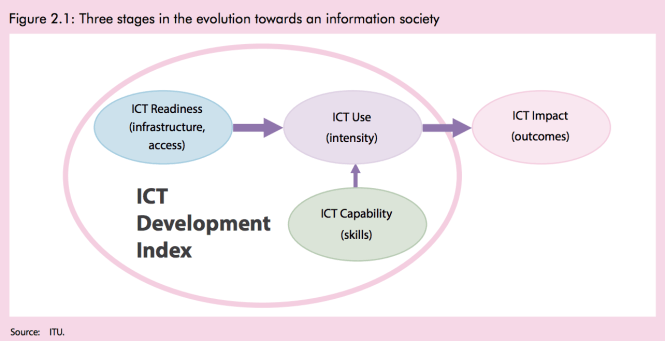25 Nov 2014
A very short update from the ITU’s World Telecommunication/ICT Indicators Symposium in Tbilisi Georgia that I just attended.
One strong theme on the first day of the meeting was that “The illiterate of the 21st century are those that cannot use ICTs” (a quote from the Ministerial Roundtable). This idea is also reflected in the publication that was launched at the meeting: the 2014 Measuring the Information Society report.
The report features a measure called the ICT Development Index (IDI) that combines a basket of ICT indicators. In justifying the need for the IDI, the report claims: “The recognition that ICTs can be a development enabler, if applied and used appropriately, is critical to countries that are moving towards information or knowledge-based societies, and is central to the IDI’s conceptual framework.”
That justification is an interesting and powerful conceptual move. The index thus no longer just measures ICT use and engagement, but suggests that it measures how close a country is to an information and knowledge-based society.
This is a topic that Sanna, Chris, Nicolas, and I are exploring in more detail in a forthcoming paper: asking what claims about ICTs are made in influential reports like this one, and then how are they actually supported. We’ll be sharing more about that paper soon.

